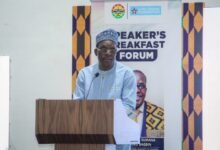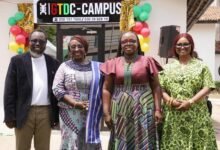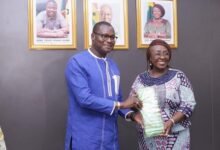KAIPTC organises training to inspire African women in peace, security

A two-week training course designed to inspire African women in peace and security is underway at the Kofi Annan International Peacekeeping Training Centre (KAIPTC) at Teshie in Accra.
Sixteen participants from the Military and Police as well as civilians from Liberia, Nigeria, Mali, Malawi, Uganda, Cameron, Zimbabwe, Kenya, Zambia and Ghana, are attending the training workshop.
It is organised by the KAIPTC in collaboration with the Women, Peace and Security Institute (WPSI) of the KAIPTC, the German Government through the GIZ support office and the Geneva Centre for Security Policy (GCSP).
Colonel Albert Dawohoso, Director of Training at KAIPTC, speaking on behalf the Commandant, at the opening, said the course was the maiden event of KAIPTC, adding that it would be held annually as a core programme of Centre.
The course, he said was put together in line with the Centre’s new strategic plan to build the capacity of Africa to fully implement the Maputo Protocol on Women Peace and Security, the United Nations Security Council Resolution (UNSRC 1325) and its follow up resolutions in the context of Africa.
“Over the years, there have been policies and strategies to this cause but despite these policies implementation continues to fall, this is why we at KAIPTC are having this course to boost the capabilities of women to spur them to achieve more in society,” Colonel Dawohoso added.
He stressed the need for the participants to accumulate as much skills needed to become leaders of change in their respective countries.
Mr Hans-Helge Sander, Deputy German Ambassador to Ghana, stated that the course provided a balanced continental outlook as the participants were from varied countries and in varied disciplines.
According to him, it was also aimed at providing capacity-building and networking opportunities for women to increase leadership and participation in the peace and security environment.
Mr Sander was pleased that the course was not a one-off programme, but would have post-engagement sessions, peer-to-peer education and establishment of a network of women who would continue to promote peace and security agenda in their respective fields.
Ms Fleur Heyworth, Head of Gender, and Inclusive Security GCSP, urged all participants to take all that they could from the course.
“There is huge gap in women leaders in peace and security and you all will be the ones to fill that gap,” she added.
BY BENEDICTA GYIMAAH FOLLEY







